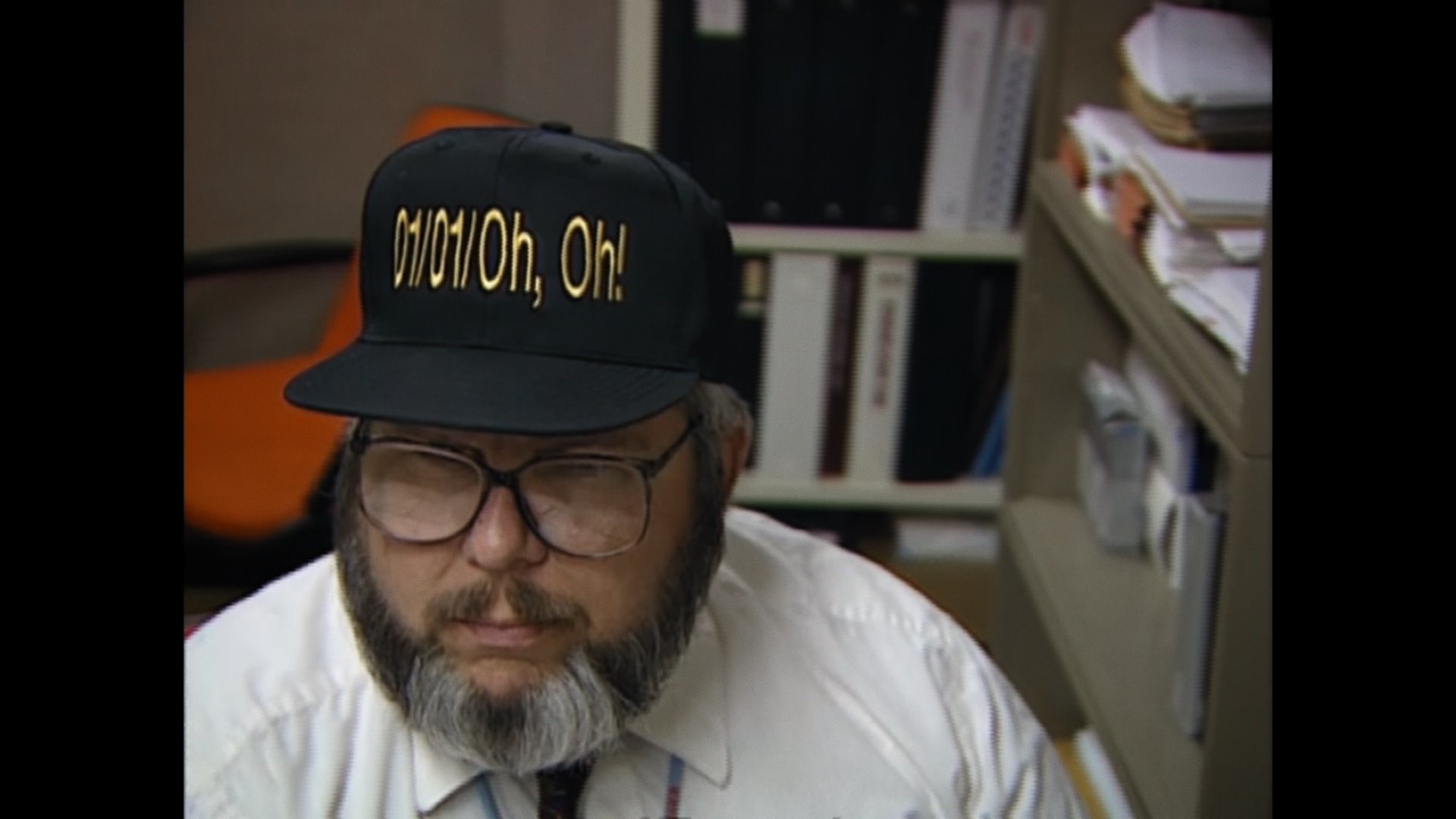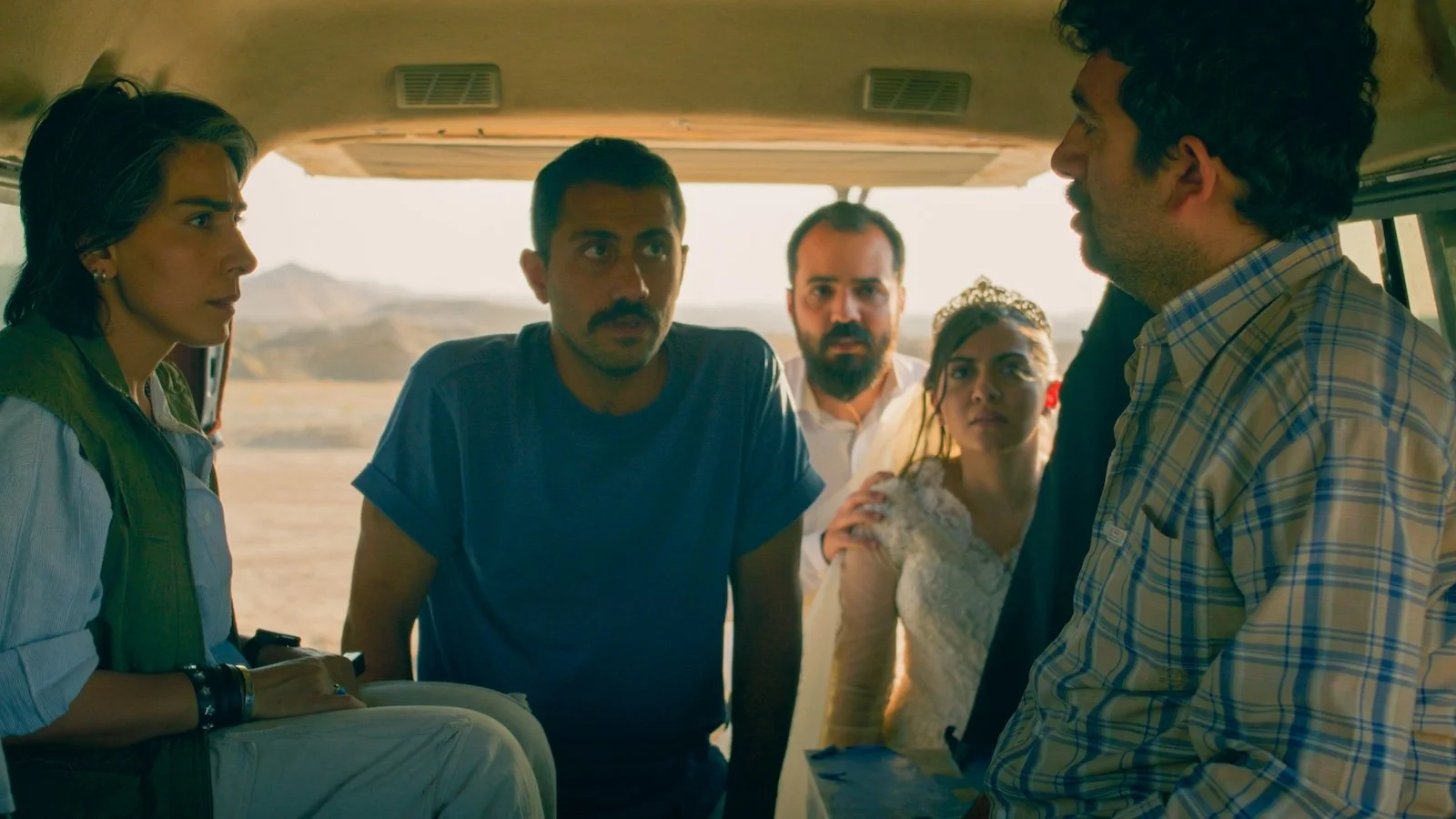Hot Docs 2023: Time Bomb Y2K
If you’re looking for a dash of late-90s nostalgia, or a primer on a time period you didn’t experience first-hand, you could do worse than watch Time Bomb Y2K. Produced by HBO, this 80-minute documentary is composed entirely of archival footage from the late 90s and charts the social panic surrounding the Y2K bug and the turn of the millennium. It’s the sort of easygoing viewing that inspires a lot of nostalgia, some genuine chuckles, and a little reflection, even if the nature of the presentation limits its editorial possibilities.
Beginning in 1996 and ending on January 1, 2000, Time Bomb Y2K finds a protagonist of sorts in Peter de Jager, the former software engineer and so-called “Y2K Paul Revere,” who dedicated himself to warning people about the Y2K bug on news broadcasts, in newspaper articles, and through his online media presence. According to de Jager, as he explains in the archival footage, the Y2K bug had the potential to destabilize the world’s automated computer systems once the clocks turned over to 2000. The bug was created due to a cost-cutting measure made by computer companies, who removed the first two digits of the year in their digital calendars in order to conserve storage space—which was considered necessary at a time when computers took up massive amounts of room and had high energy costs. However, when the year turned over to 2000, the computer systems as currently constructed would assume that the year was 1900, possibly resulting in some cascading network failures.
De Jager’s warnings turned into a full-scale media panic, which news organizations ran with for several years to feed public interest. Directors Marley McDonald and Brian Becker rely on the vast assortment of news broadcast footage, as well as corporate videos, home movies, and other TV footage to tell the story. The film not only focuses on de Jager’s successful campaign to make Y2K the definitive crisis of the late 90s, but also on the various individuals who took his warning too seriously and prepared for the end of modern civilization. There are interviews with doomsday preppers, militia members, evangelical preachers, and ordinary people driven mad by the possibility that their ordinary urban lives were about to be upended.
The directors mine these moments for laughs. The edit presents the militia members and doomsday cultists as maniacs, and the ordinary people as fools who have ruined their lives over an irrational panic. Of course, much of the editorial posturing is present in the original archival footage itself, but Time Bomb Y2K adds a level of irony in its structural editing. For instance, at one point, a clip of Peter Griffin freaking out about Y2K on Family Guy cuts seamlessly to footage of a fat police officer running through a panicked crowd; the edit generates a humorous comparison between the real people who freaked out and fictional fools like Peter Griffin.
Through its editorial focus, the film becomes a portrait of social hysteria, albeit one with remarkably low stakes, in retrospect. As Peter de Jager tacitly admits in an interview in late 1999, the panic was overblown, but he also takes credit for the aversion of disaster, stating that if he had not created a social panic, governments and corporations would not have patched the bug in advance of the millennium. Whether de Jager was correct, and whether the Y2K bug truly constituted a serious threat, is not the focus of this film. The archival nature of its presentation, and lack of any kind of editorial, non-diegetic voiceover, makes retrospective commentary on the panic beside the point.
However, simply through its presentation, the film nonetheless editorializes as its panicked interview subjects and clips of hysteria on broadcast news draws implicit parallels with our current moment. We just lived through a social panic around COVID-19, a more dire crisis than Y2K, to be sure, but also one approached with hysteria through political and media channels. In retrospect, many aspects of the pandemic were not as bad as predicted, but the outcomes were also affected by actions sparked by the media reaction. Thus, the film becomes an instructive lesson about social panics more generally, from climate change to AI, and how difficult it is to sort out what works and what doesn’t during a crisis once that crisis has permeated global culture across all levels of media.
It’s not clear whether any of this editorializing is intended by Time Bomb Y2K, but that doesn’t matter when discussing the film’s impact. The film is all about recreating the specificity of the time and moment of the late-90s. It’s a primer on the Y2K panic, first and foremost. But it also spurs some modest reflections on our media-saturated, hysterical culture as a whole—even if it does so unintentionally.
6 out of 10
Time Bomb Y2K (2023, USA)
Directed by Marley McDonald and Brian Becker.



Nia DaCosta’s sequel to 28 Years Later pits two competing theologies of death against each other.